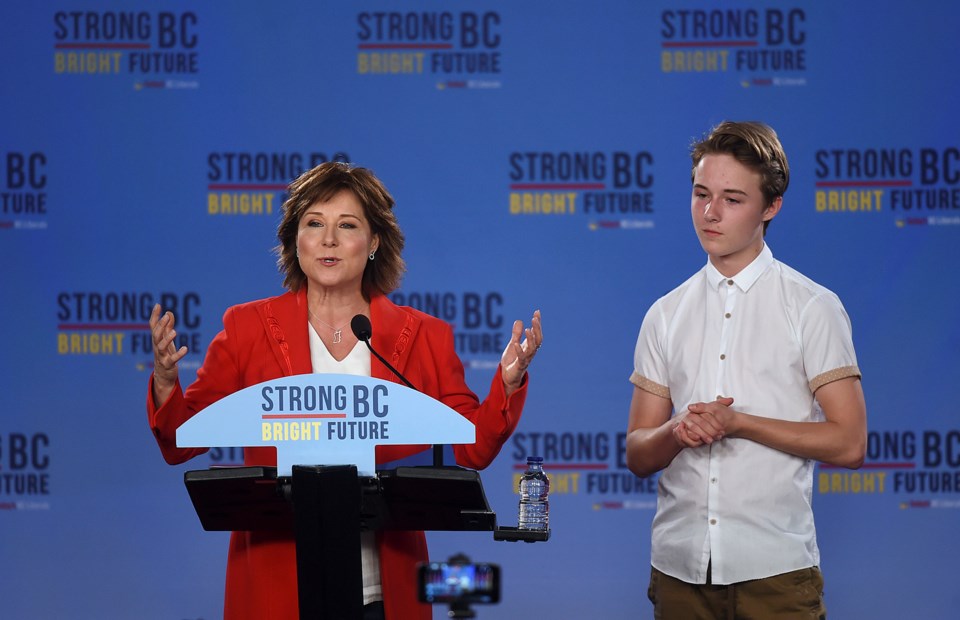We will, as John Horgan said sometime after midnight while addressing a raucous NDP crowd, “have to wait a bit longer,” to actually know the outcome of the provincial election.
Christy Clark, in addressing an equally pumped room full of Liberals, sounded like she was giving a victory speech. Even though the results were a clear repudiation of her government, she said she fully intended to carry on as Premier: “It is my intention to continue to lead the British Columbia Government.” But we will see.
Ěý
We will see if she still intends to carry on with the Site C dam, the construction of a 10-lane bridge across the Fraser to replace the Massey Tunnel, her demand for another referendum in order for Metro Â鶹´«Ă˝Ół»mayors to raise new funds for transit, and a refusal to raise welfare rates.
As of election night, Clark failed to achieve the 44-seat majority by the slimmest of margins. Her losses were NDP gains. It was Liberals 43, NDP 41 and Greens 3. Ěý
Indeed, as Horgan correctly pointed out, “A majority of British Columbians [almost 60 per cent when you put the Greens and the NDP together] voted for a new government and I believe that’s what they deserve.”
In terms of popular vote, the results hurt only one party compared to four years ago; the NDP held what they had in 2013, and the Greens doubled their support because they appear to have gained votes from the Liberals.
Ěý
And looking at the electoral map, you will see two very different provinces. Up country was definitely moved to support Clark and her Liberals. But Metro Â鶹´«Ă˝Ół»was largely a sea of orange, taking down three key Liberal cabinet ministers: Amrik Virk, Suzanne Anton and Peter Fassbender.
All of the Greens seats were on Â鶹´«Ă˝Ół»Island.
While Clark put her best spin on the results, saying the election “opened a whole new dialogue,” Horgan made a pitch about this new balance of power that would appeal not just to his supporters but also to Andrew Weaver and the Greens as well.
He committed to “get big money out of politics,” which Clark has resisted. He promised a new electoral system with “proportional representation,” which the Greens advocate for and Clark has opposed. And he wants “action on climate change.”
Both the NDP and the Greens oppose more pipelines and oil tankers, starting with the Kinder Morgan expansion project.
While Clark was wooing support up country and up the valley with her commitment to jobs and balanced budgets, Metro voters were more concerned about tolls on bridges, a lack of public transportation, affordable housing, health care and accessible and affordable daycare.
Her strategy was to scare voters, to make them leery of an NDP government that hadn’t been in power for more than 16 years and well before many of them were even living in this province. And in spite of her massive election war chest, she fell short.
Failing any change in the number of seats held by each party as a result of judicial recounts or absentee ballots, B.C. will face the first minority government since W.A.C. Bennett came to power in 1952. You can bet the Lieutenant Governor is going over the rule books to see what her role will be. Clark will be given the first shot at attempting to gain the “confidence of the legislature” by bringing in a piece of legislation to see if she can get majority support.
Clark will, doubtless, attempt to make a deal with the Greens and Weaver. And you can bet that Horgan will follow that same path and make the point that change is what the voters wanted and that means an end to a government that has ruled these past 16 years to the growing discontent of the majority of British Columbians.
If however, absentee ballot counts result in moving the Liberals up just one seat, all bets are off. Those will become factors in just over a week. There will also be a judicial recount because of the close NDP win in Courtney-Comox.
So we wait. But while we wait, the back rooms will be busy particularly as “the first ever Green election caucus in North America” decides what to do.
[email protected]
ĚýĚýĚýĚýĚý



